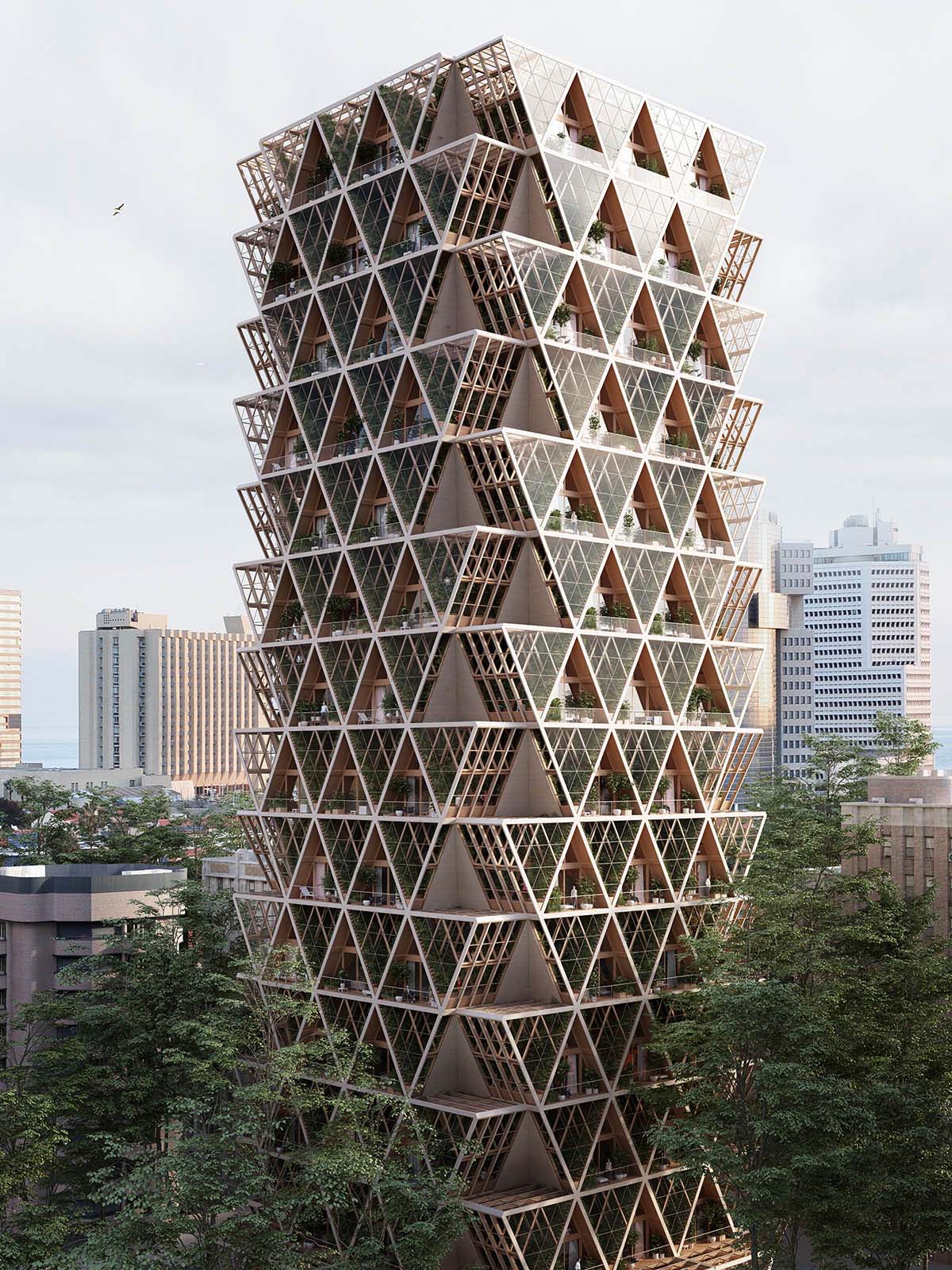
Precht and his wife Fei Precht have designed a vertical farmhouse that connects architecture and agriculture in one tower, by only using modular triangular volumes.
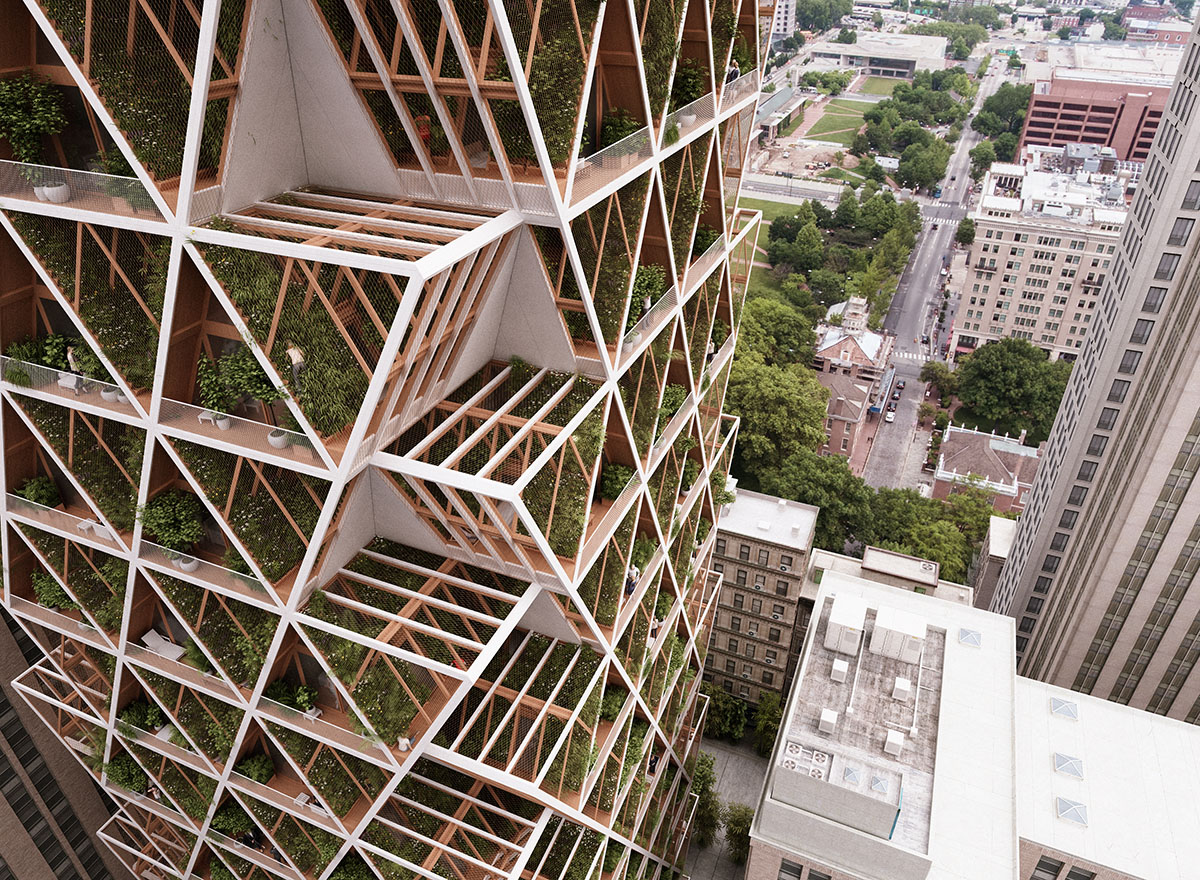
Chris Precht, who is also the co-founder of Penda, with his wife developed a new design scheme that addresses to vertical farmhouses to provide an alternative building typology to grow food hand in hand, or with demand for more food and more liveable areas.
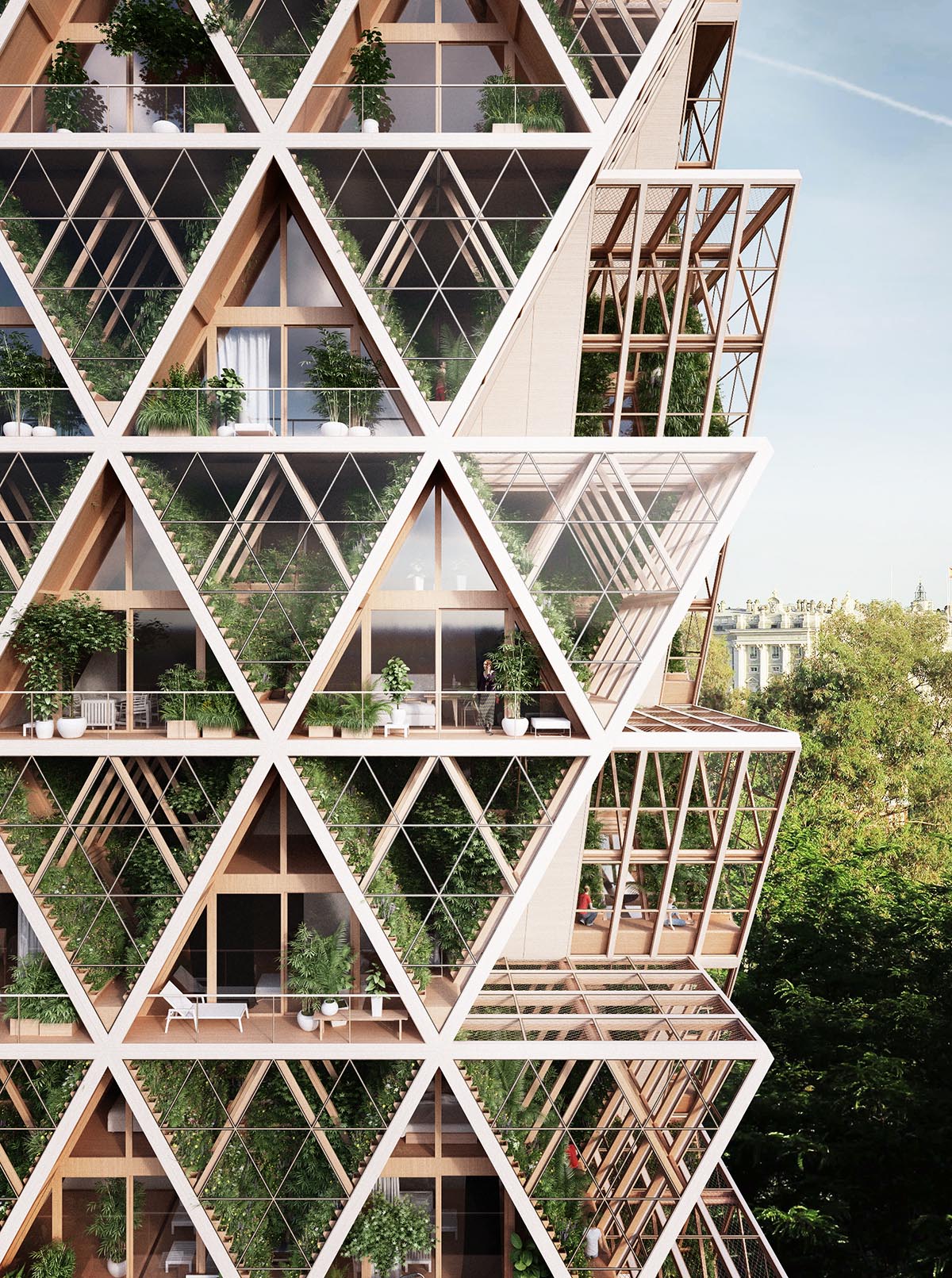
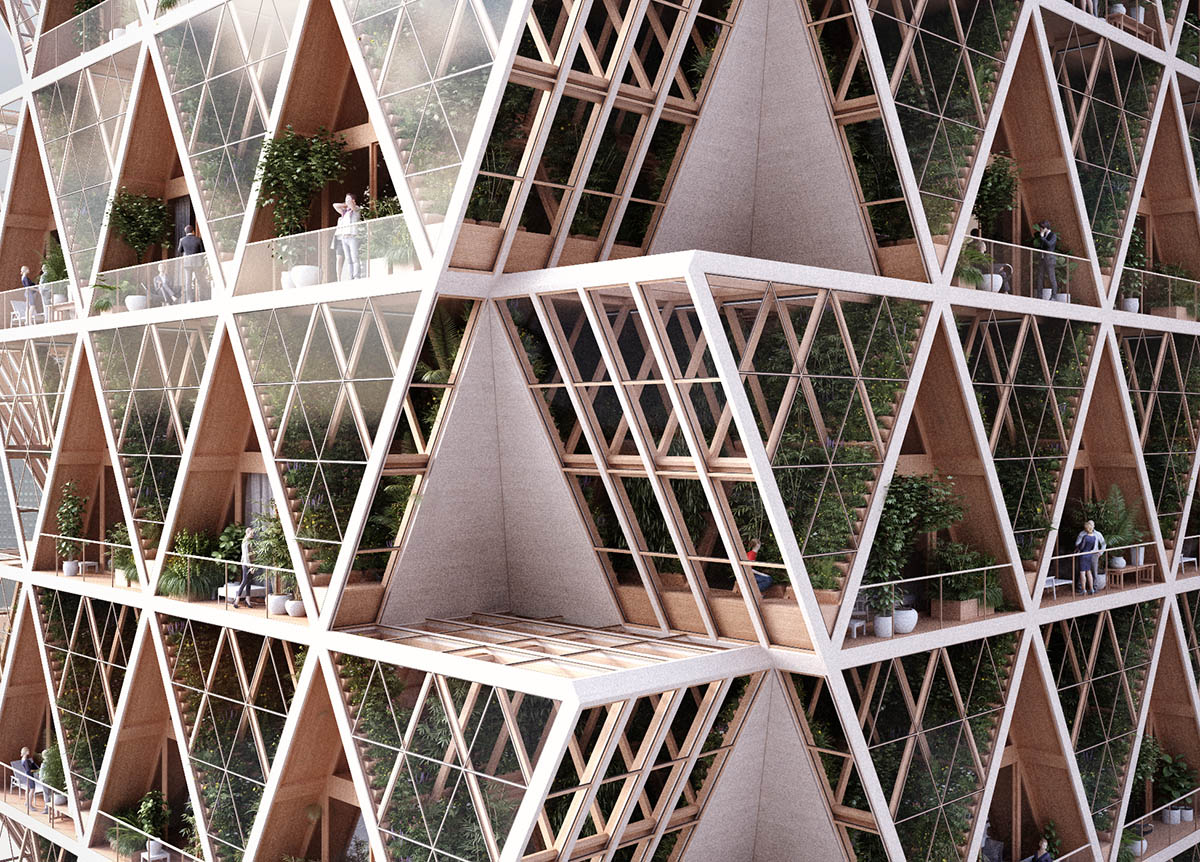
Precht’s farmhouse will run on an organic life-cycle of byproducts inside the building, where one processes output is another processes input: Buildings create already a large amount of heat, which can be reused for plants like potatoes, nuts or beans to grow. A water-treatment system filters rain-and greywater, enriches it with nutrients and cycles it back to the greenhouses. The food waste can be locally collected in the buildings basement, turned into compost and reused to grow more food.
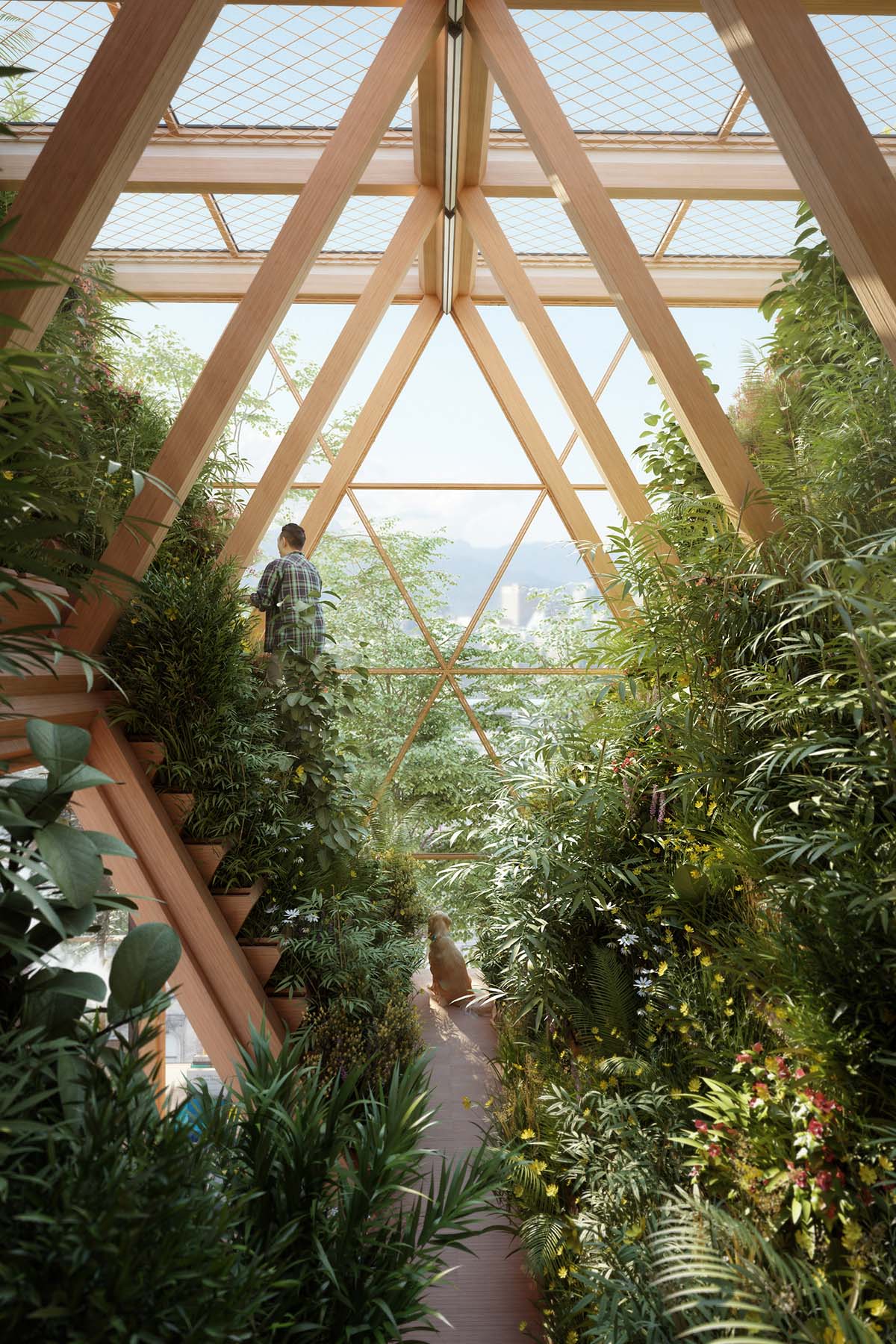
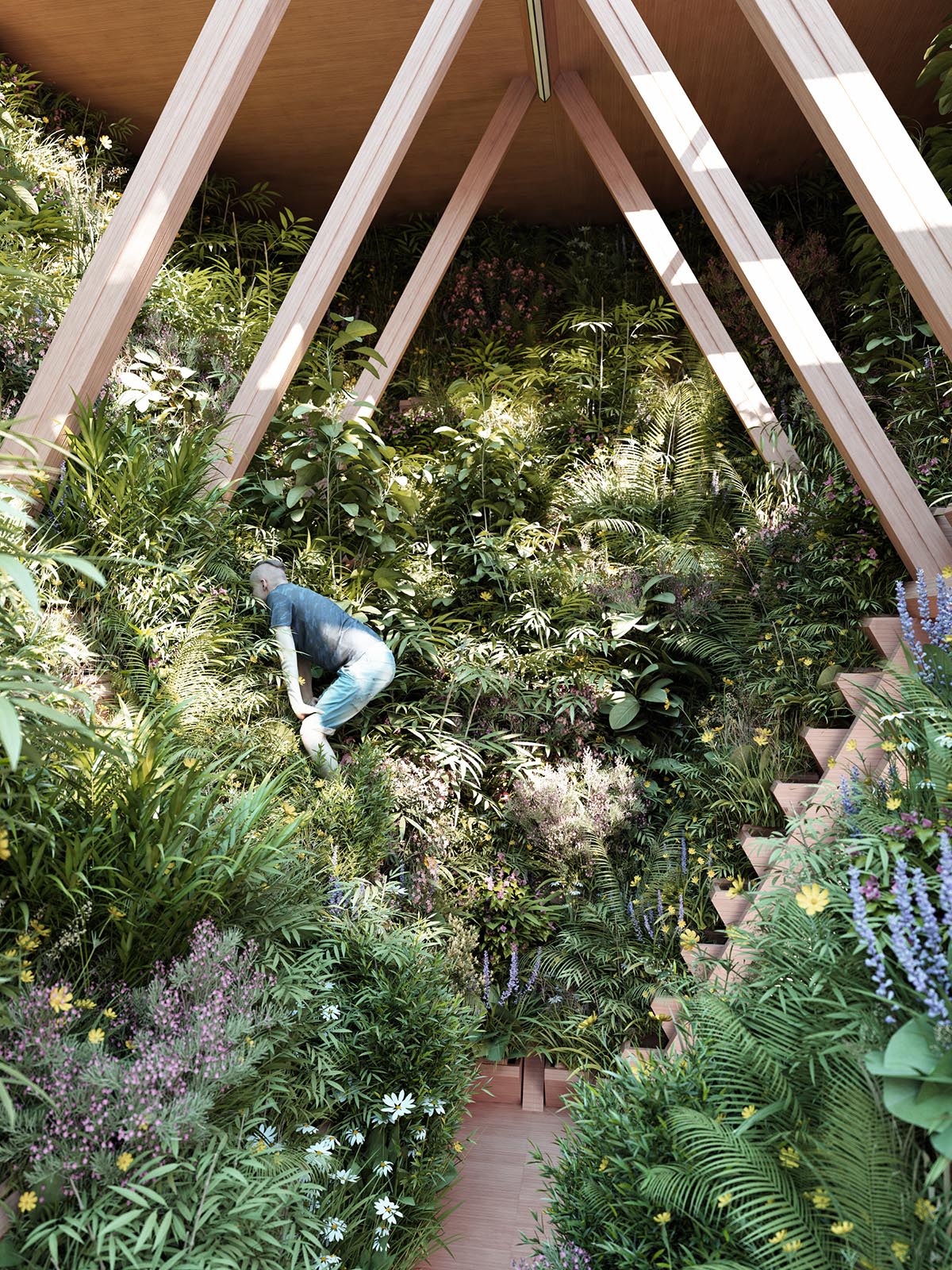
Taller structures are assembled as duplex-sized A-frames, which provide a large open space on thefirst floor for a living-room and kitchen and a tent-like space on the second floor for bedrooms and bathrooms. The angled walls give space for gardening on their outside and create a V-shaped buffer zone between the apartments.
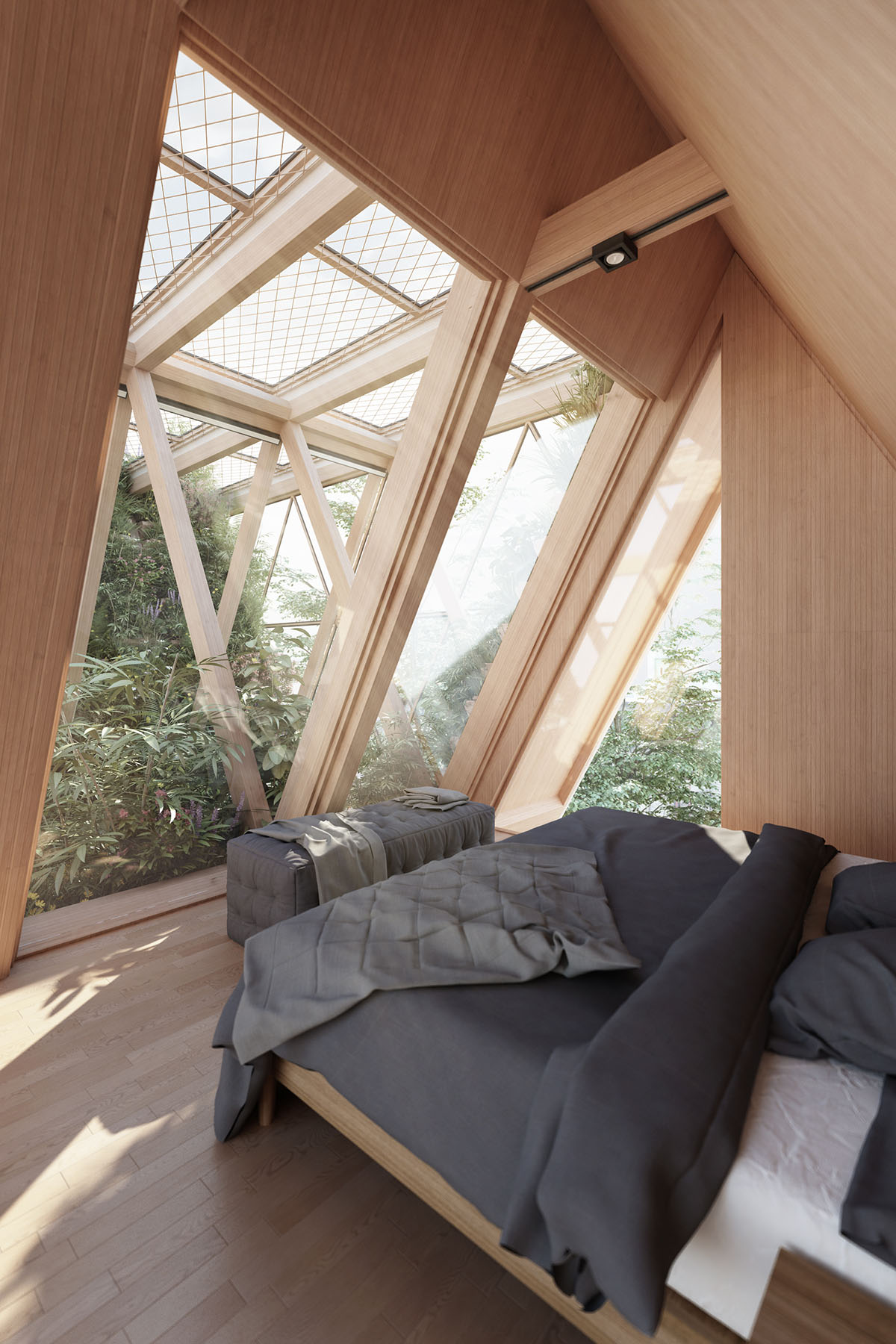
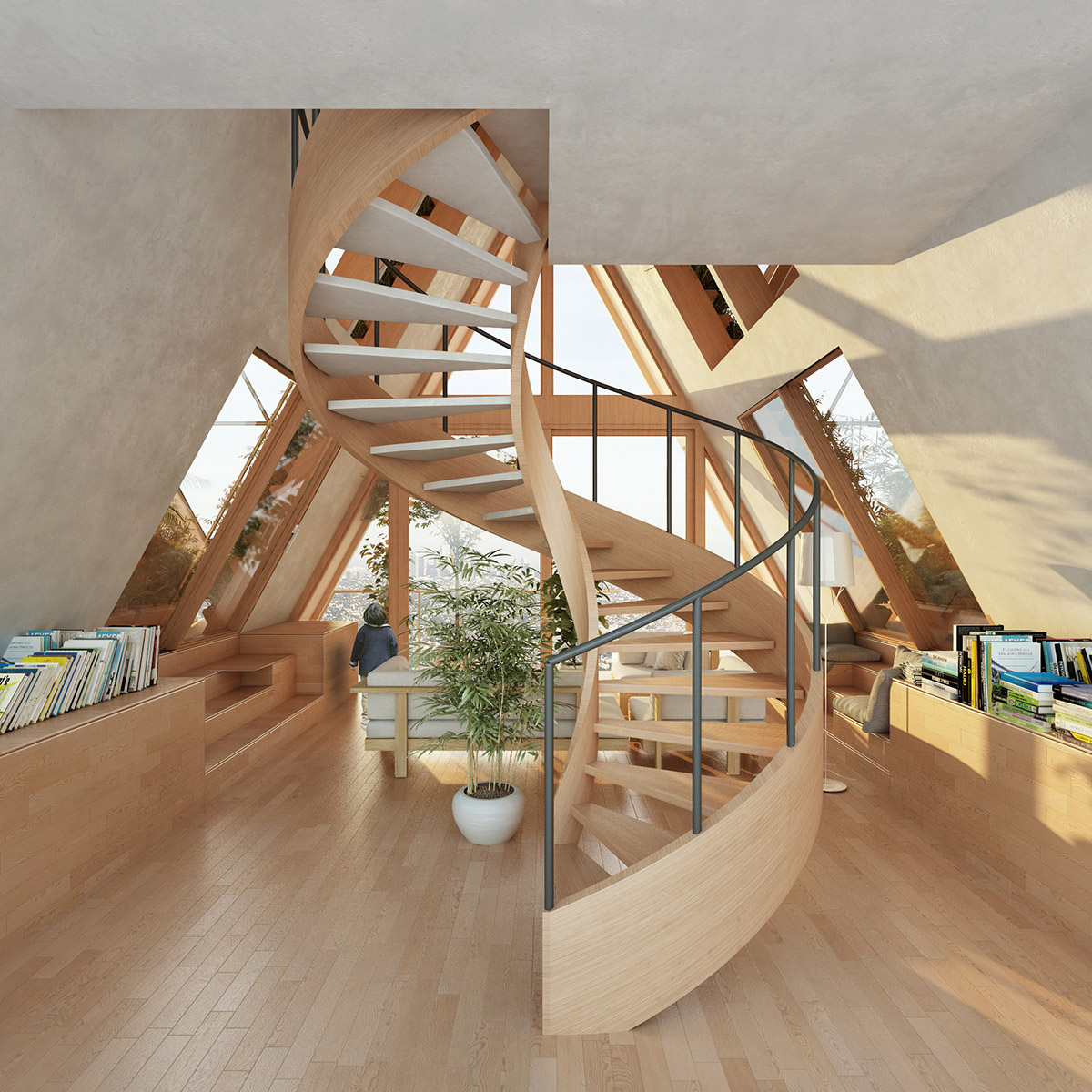
This also lets natural ventilation and natural light into the building. The building invokes a direct connection with a natural surrounding, that stands apart from the concrete landscape of our cities. A tent that is surrounded by nature. A Yin&Yang of colourful gardens and healthy interiors.
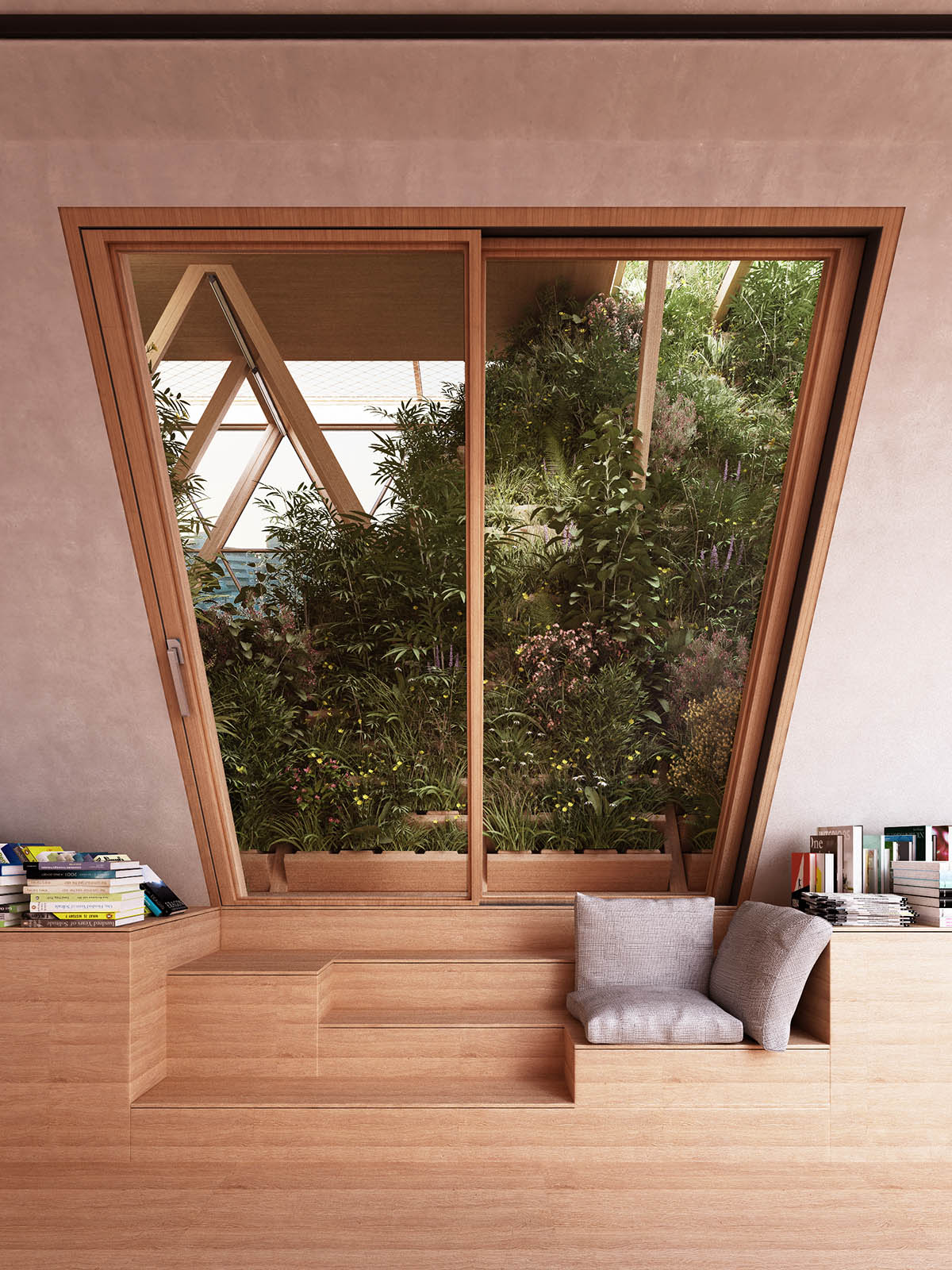
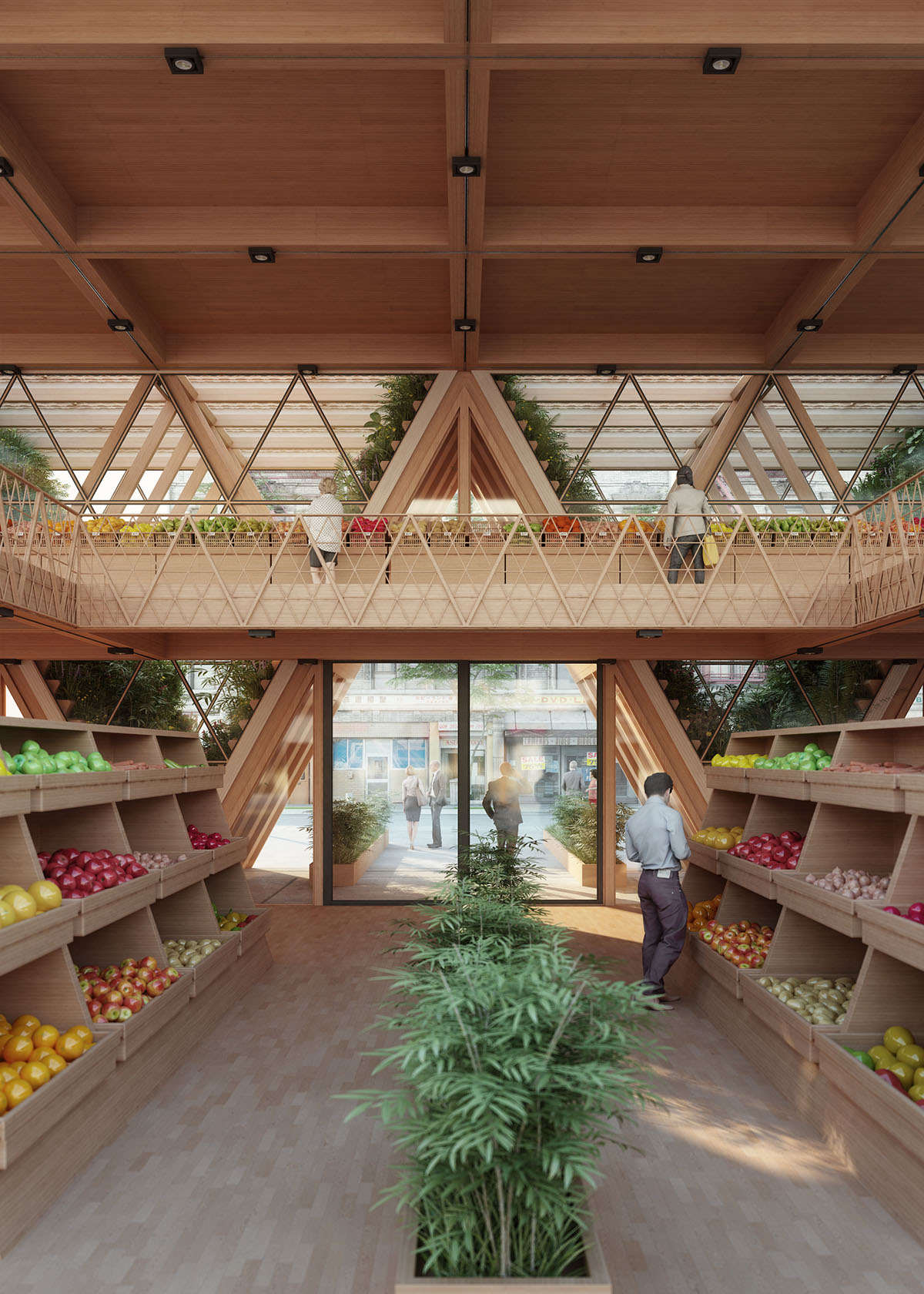
The gardens can be used privately for residents to grow their own food, or as a collaborative effort to plant vegetables and herbs for a wider community.
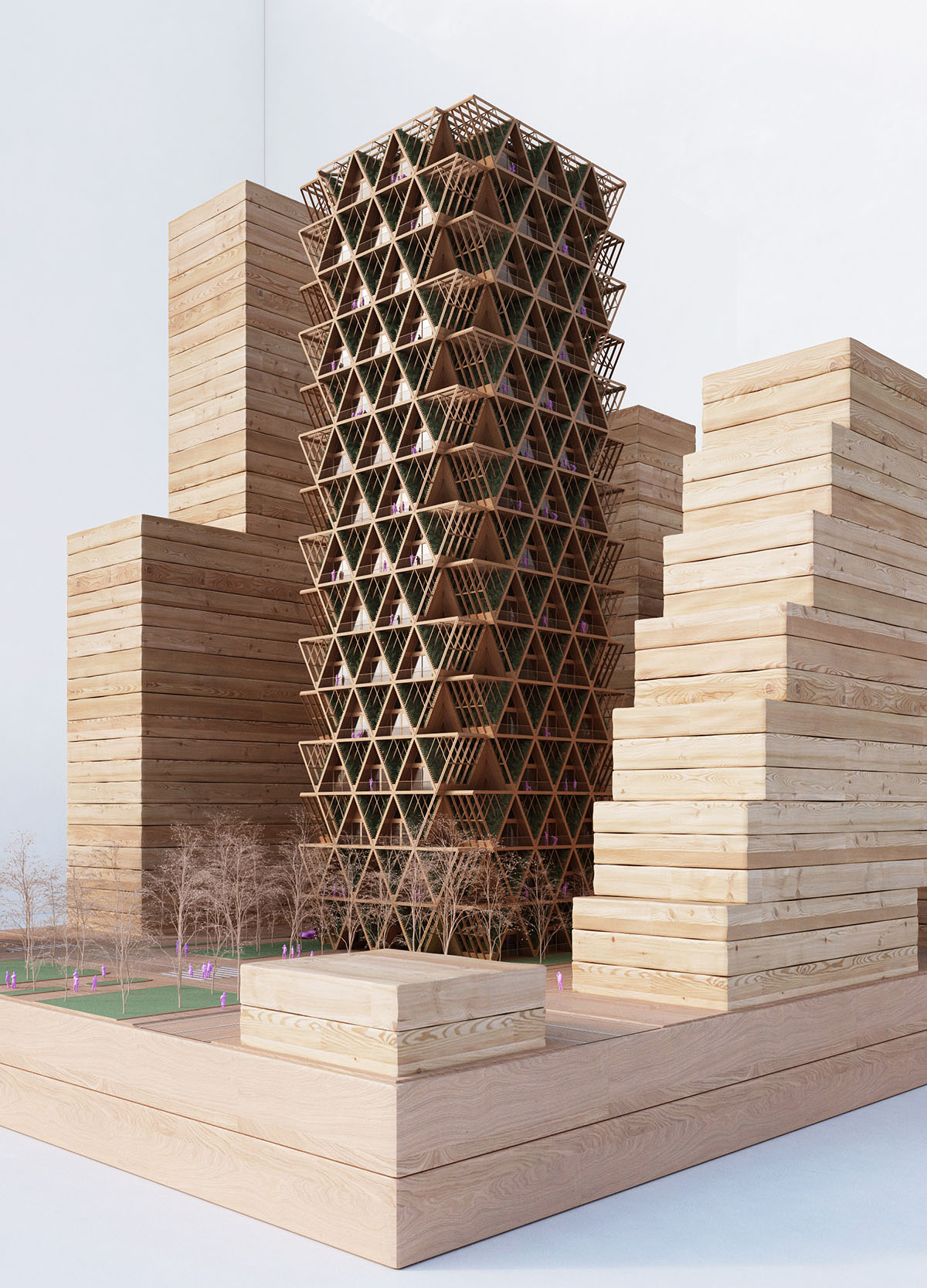
After the harvest, the food can be shared or sold at an indoor farmers market on the lower floors of the building. Educational classes, a root cellar and compost units round up the idea of an ecological loop within one building.
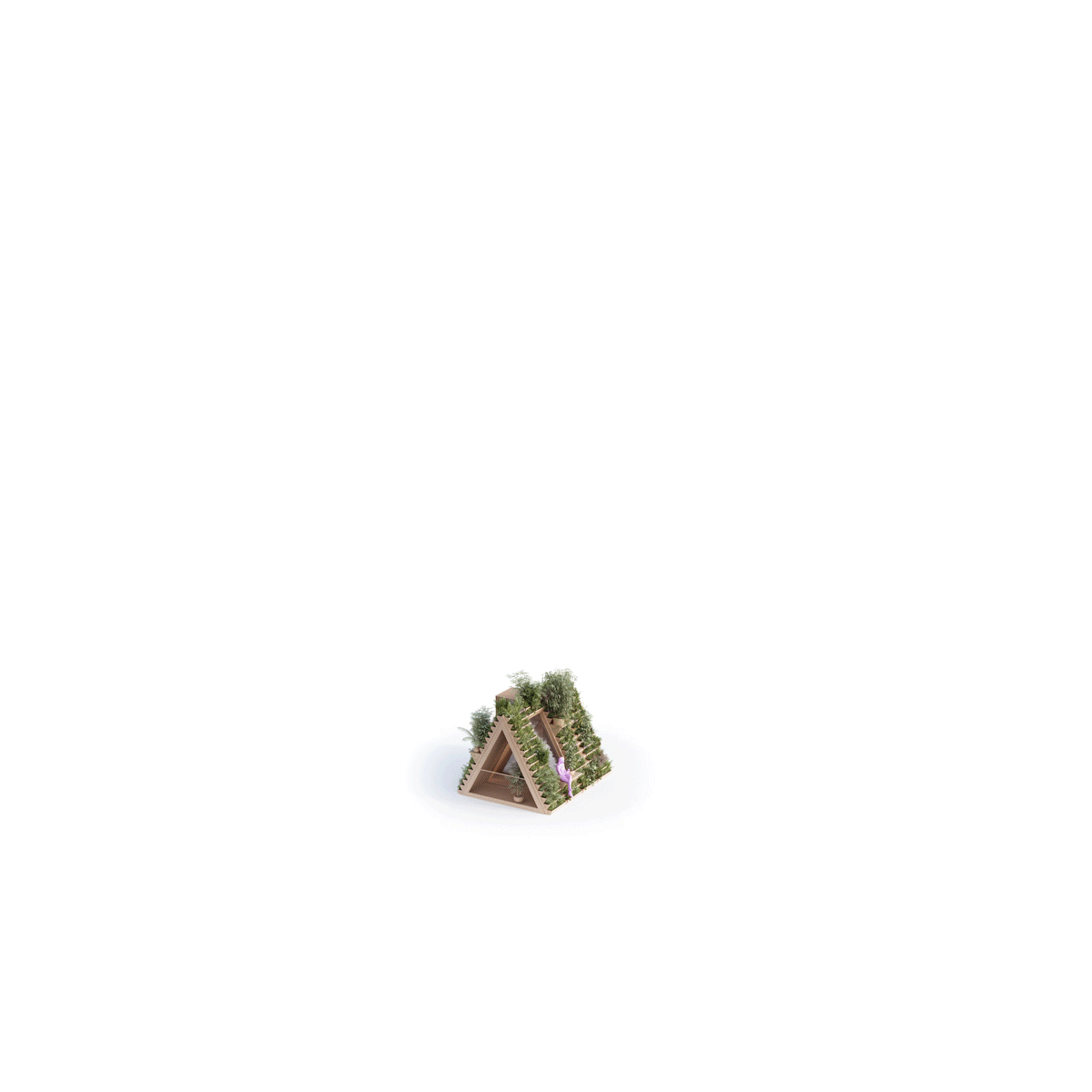
The Farmhouse is developed as an example of a building that is part of our eco-system. It lives, breaths and grows and is not islands in the city, but integral part to the wider neighbourhood.
SEE MORE Precht
